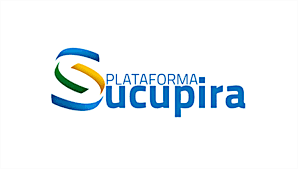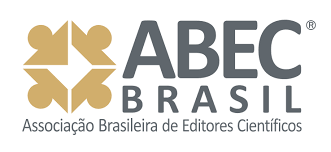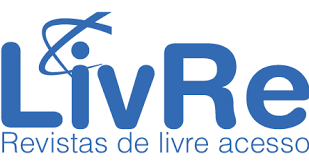USE OF NUTRITIONAL SUPPLEMENTS IN CROSSFIT PRACTITIONERS
DOI:
https://doi.org/10.47820/jht.v1i2.15Keywords:
Nutrition Assessment, Dietary Supplements, Sports nutritional scienceAbstract
Introduction: Crossfit is a modality of physical strength and metabolic conditioning. It is known that diet and nutritional supplementation can interfere in the physical performance of practitioners. Objective: To quantify the use of nutritional supplements (protein, carbohydrate and micronutrients), as well as to evaluate the adequacy of the moment of consumption of the most cited supplement (pre, during or after training). Materials and Methods: 60 crossfit practitioners from three gyms located in the city of São Paulo were invited to participate. The research instrument was a questionnaire prepared by the researchers. Data were analyzed with descriptive statistics. Results: Among the participants (48% men and 52% women), 70% used supplements. The most consumed were protein supplements, mainly whey protein. Only 4.8% were on carbohydrate supplements and 3.2% on micronutrients. Most whey protein consumers reported using 1 (37.1%) or 2 (34.3%) scoops a day. One third (34.3%) of users reported consuming this supplement before training, followed by 25.7% who consumed it before and after training, and 14.3% who used it only after training. Discussion: Anaerobic muscle power activities involve higher protein turnover, which may explain the preference for protein supplements. Conclusion: Most of the research participants used nutritional supplements, and whey protein was the most cited. The doses stipulated on the product label were respected by most respondents, however, the timing of use and the type of supplement chosen in many cases were not suitable.
Downloads
References
Alencar, L.; Sodré, R.S.; Rosa, G. Efeito agudo de uma sessão de Crossfit sobre as variáveis hemodinâmicas e a percepção de esforço de adultos treinados. Revista de Educação Física. Vol. 1. Num. 81. 2018. p. 271-278. DOI: https://doi.org/10.37310/ref.v87i1.487
Andersen, L.L. Tufekovic G., Zebis M.K., Crameri R.M., Verlaan G., Kjaer M., Suetta C., Magnusson P., Aagaard P. The effect of resistance training combined with timed ingestion of protein on muscle fiber size and muscle strength. Metabolism. Vol. 54. Num. 2. 2005. p.151-156. DOI: https://doi.org/10.1016/j.metabol.2004.07.012
Aragão, A.R.; Fernandes, D.C. Consumo alimentar e de suplementos no pré e pós-treino em homens praticantes de musculação em Goiânia, Goiás. Estudos Vida e Saúde. Vol. 41. Num. especial .2014. p. 15-29.
Bueno, B.A.; Ribas. M.R.; Bassan, J.C. Determinação da ingesta de micro e macro nutrientes na dieta de praticantes de crossfit. Revista Brasileira de Nutrição Esportiva. Vol. 10. Num. 59. 2016. p. 579-586.
Brasil, Conselho Nacional de Saúde (2013). Resolução 466/12. Disponível em: http://conselho.saude.gov.br/resolucoes/2012/Reso466.pdf Acesso em: 03 de outubro de 2019.
Cabral, C.A., Rosado, G.P.; Silva, C.H.O.; Marins, J.C.B. Diagnóstico do estado nutricional dos atletas da Equipe Olímpica Permanente de Levantamento de Peso do Comitê Olímpico Brasileiro (COB). Revista Brasileira de Medicina Esportiva. Vol. 12. Num. 6. 2006. p.345-350. DOI: https://doi.org/10.1590/S1517-86922006000600009
Cribb, P.J.; Hayes, A. Effects of supplement timing and resistance exercise on skeletal muscle hypertrophy. Medicine & Science in Sports & Exercise. Vol. 38. Num.11. 2006. p. 1918-1925. DOI: https://doi.org/10.1249/01.mss.0000233790.08788.3e
Cribb, P.J.; Williams, A.D.; Hayes, A. Creatine-protein-carbohydrate supplement enhances responses to resistance training. Medicine & Science in Sports & Exercise. Vol.39. Num. 11. 2007. p. 1960-1968. DOI: https://doi.org/10.1249/mss.0b013e31814fb52a
Conselho Federal de Educação Física (CONFEF). Resolução 307 de 2015. Disponível em: https://www.confef.org.br/confef/resolucoes/381 Acesso em 20 de maio de 2019.
Conselho Federal de Nutricionistas (CRF). Resolução 390 de 2006. Disponível em: http://www.cfn.org.br/novosite/pdf/res/2006/res390.pdf Acesso em 20 de maio de 2019.
Conselho Federal de Nutricionistas (CRF). Resolução 380 de 2005. Disponível em: http://www.cfn.org.br/novosite/pdf/res/2005/res380.pdf Acesso em 20 de maio de 2019.
Escobar, K.A.; Morales, J., Vandusseldorp, T.A. The effect of a moderately low and high carbohydrate intake on crossfit performance. International Journal of Exercise Science. Vol. 9. Num. 3. 2016. p.460-470.
Fernandes, W.N.; Machado, J.S. Uso de suplementos alimentares por frequentadores de uma academia do município de Passo Fundo-RS. Revista Brasileira de Nutrição Esportiva. Vol. 10. Num. 55. 2016. p.59-67.
Gualano, B. Suplementação de creatina: efeitos ergogênicos, terapêuticos e adversos. São Paulo. Manole. 2014. p. 172.
Ha, E.; Zemel, M.B. Functional properties of whey, whey components, and essenctial amino acids: mechanisms underlying health benefits for active people. The Journal of Nutrition Biochemistry. Vol.14. Num. 5. 2003. p. 251-258. DOI: https://doi.org/10.1016/S0955-2863(03)00030-5
Lima, C.C.; Nascimento, S.P.; Macêdo, E.M.C. avaliação do consumo alimentar no pré-treino em praticantes de musculação. Revista Brasileira de Nutrição Esportiva. Vol. 7. Num. 37. 2013. p. 13-18.
McArdle, W.D.; Katch, F.I.; Katch, V.L. Fisiologia do exercício: nutrição, energia e desempenho humano. 7a ed. Rio de Janeiro. Guanabara Koogan, 2011. p. 2578.
McCartney, D.; Desbrow, B.; Irwin, C. Post-exercise ingestion of carbohydrate, protein and water: a systematic review and meta-analysis for effects on subsequent athletic performance. Sports Medicine. Vol. 48. Num. 2. 2018. p.379-408. DOI: https://doi.org/10.1007/s40279-017-0800-5
Melo, F.F.; Bordonal, V.C. Relação do uso da whey protein isolada e como coadjuvante na atividade física. Revista Brasileira de Nutrição Esportiva. Vol. 3. Num. 17. 2009. p. 478-487.
Moreira, F.P.; Rodrigues, K.L. Conhecimento nutricional e suplementação alimentar por praticantes de exercícios físicos. Revista Brasileira de Medicina do Esporte. Vol. 20. Num. 5. 2014. p. 370-373. DOI: https://doi.org/10.1590/1517-86922014200500795
Oliveira, A.A., Oliveira, A.A. Suplementação e performance em praticantes de crossfit. Revista Brasileira de Nutrição Esportiva. Vol. 11. Num. 66. 2017, p.719-723.
Outlaw, J.J., Wilborn, C.D., Smith-Ryan, A.E.; Hayward, S.E.; Urbina, S.L.; Taylor, L.W.; Foster, C.A. Effects of a pre-and post-workout protein-carbohydrate supplement in trained crossfit individuals. Springerplus. Vol. 3. 2014. p.369. DOI: https://doi.org/10.1186/2193-1801-3-369
Panta, R.; Silva Filho, J.N. efeitos da suplementação de creatina na força muscular de praticantes de musculação: uma revisão sistemática. Revista Brasileira de Nutrição Esportiva, Vol. 9. Num. 54. 2015. p. 518-524.
Saudades, J.O.; Kirsten, V.R.; Oliveira, V.R. Consumo da proteína do soro do leite entre estudantes universitários de Porto Alegre RS. Revista Brasileira de Medicina do Esporte. Vol. 23. Num. 4. 2017. p. 289-293. DOI: https://doi.org/10.1590/1517-869220172304167205
Sgarbieri, V.C. Propriedades fisiológicas funcionais das proteínas do soro de leite. Revista de Nutrição. Vol. 4. Num. 17. 2004. p. 397-409. DOI: https://doi.org/10.1590/S1415-52732004000400001
Sousa, M.A.Q.; Azevedo, C.H.G. suplementação de creatina e possíveis efeitos colaterais. Revista Brasileira de Nutrição Esportiva. Vol. 2. Num. 9. 2008. p. 99-105.
Tibana, R.A.; Sousa, N.M.F.; Prestes, J. Quantificação da carga da sessão de treino no Crossfit por meio da percepção subjetiva do esforço: um estudo de caso e revisão da literatura. Revista Brasileira de Ciência e Movimento. Vol. 25. Num. 3. 2017. p. 5-10. DOI: https://doi.org/10.31501/rbcm.v25i3.7505
Vargas, C.S.; FERNANDES, R.H.; LUPION, R. Prevalência de uso dos suplementos nutricionais em praticantes de atividade física de diferentes modalidades. Revista Brasileira de Nutrição Esportiva. Vol. 52. Num. 9. 2015. p. 343-349.
World Medical Association (WMA). Declaration of Helsinki (2013). Disponível em: https://www.wma.net/policies-post/wma-declaration-of-helsinki-ethical-principles-for-medical-research-involving-human-subjects/ Acesso em 03 de outubro de 2019.
Downloads
Published
How to Cite
License
Copyright (c) 2022 Journal Health and Technology - JHT

This work is licensed under a Creative Commons Attribution 4.0 International License.
The copyright of published articles belongs to JHT, and follows the Creative Commons standard (CC BY 4.0), allowing copying or reproduction, as long as you cite the source and respect the authors' rights and contain mention of them in the credits. All and any work published in the journal, its content is the responsibility of the authors, and RECIMA21 is only responsible for the dissemination vehicle, following national and international publication standards.

 Clique para ver detalhes
Clique para ver detalhes 





























